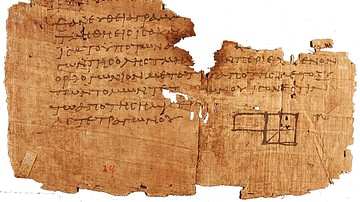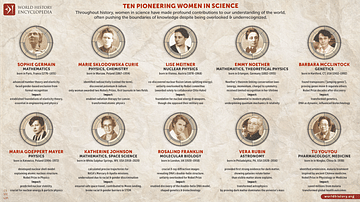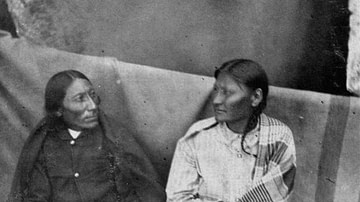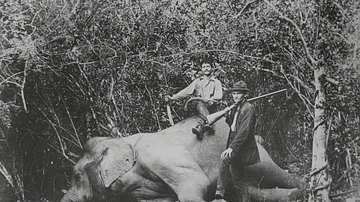Search
Remove Ads
Advertisement
Summary 
Loading AI-generated summary based on World History Encyclopedia articles ...
Search Results

Definition
Science
The term science comes from the Latin word scientia, meaning "knowledge". It can be defined as a systematic attempt to discover, by means of observation and reasoning, particular facts about the world, and to establish laws connecting facts...

Definition
Ancient Greek Science
Ancient Greek science is a modern term for the application of systematic inquiry into the individual, the world, and the universe, which began in Ionia in the 6th century BCE with Thales of Miletus (l. c. 585 BCE) and continued through the...

Definition
Roman Science
The Romans assimilated earlier Greek science for their own purposes, evaluating and then accepting or rejecting that which was most useful, much as they did in other fields such as warfare, art, and theatre. This assimilation of Greek thought...

Definition
Mesopotamian Science and Technology
Mesopotamian science and technology developed during the Uruk Period (4100-2900 BCE) and Early Dynastic Period (2900-1750 BCE) of the Sumerian culture of southern Mesopotamia. The foundation of future Mesopotamian advances in scientific/technological...

Article
Ancient Egyptian Science & Technology
The great temples and monuments of ancient Egypt continue to fascinate and amaze people in the modern day. The sheer size and scope of structures like the Great Pyramid at Giza or the Temple of Amun at Karnak or the Colossi of Memnon are...

Video
Frankenstein: Everything You Need to Know
View full lesson: http://ed.ted.com/lessons/everything-you-need-to-know-to-read-mary-shelley-s-frankenstein-iseult-gillespie In 1815, Lord Byron proposed a challenge to a few literary guests he had gathered in his house on Lake Geneva...

Image
Ten Pioneering Women in Science
Throughout history, women in science have made groundbreaking discoveries, often pushing the boundaries of knowledge despite being overlooked and underrecognized. Many of their contributions have reshaped entire fields, from mathematics and...

Image
Mochi: Cheyenne Who Survived Sand Creek Massacre and Became a Warrior
Cheyenne warrior Mochi ("Buffalo Calf", l. c. 1841-1881), pictured on the right, took up arms against US government forces after surviving the Sand Creek Massacre of 29 November 1864. Prior to the massacre, she was among those seeking peaceful...

Image
Swiss Colonial Science
Swiss colonial science. Fritz and Paul Sarasin were scientists who travelled to British controlled Ceylon and Dutch ruled Celebes during the last decades of the 19th century. The elephant slain here had a calf that was shipped to Basel Zoo...

Video
Jerry Cooper | Everything You've Always Wanted to Know about Sex in Babylonia . . .
Everything You've Always Wanted to Know about Sex in Babylonia . . . Lecture by Jerry Cooper, W. W. Spence Professor of Semitic Languages Emeritus, The Johns Hopkins University This breezy look at 3000 years of sex in ancient Mesopotamia...